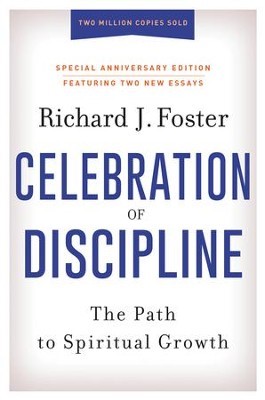Click here to return to Blog Post Intro

What we study determines the kind of habits that are formed, which is why Paul urges us to focus on things that are true, honorable, just, pure, lovely, and gracious.

The Discipline of study is the primary vehicle to bring us to “think about these things.”
Study involves these four steps:
- Step One: Repetition – Repetition regularly channels the mind in a specific direction, thus ingraining habits of thought.
- Step Two: Concentration – If, in addition to bringing the mind repeatedly to the subject matter, the person will concentrate on what is being studied, learning is vastly increased. Concentration centers the mind. It focuses the attention on what is being studied. We live in a culture that does not value concentration. Distraction is the order of the day.
- Step Three: Comprehension – When we not only repeatedly focus the mind in a particular direction, centering our attention on the subject, but understand what we are studying, we reach a new level—comprehension. Jesus reminds us that it is not just the truth but the knowledge of the truth that sets us free (John 8:32).
- Step Four: Reflection – Although comprehension defines what we are studying, reflection defines the significance of what we are studying. To reflect, to ruminate, on the events of our time leads us to the inner reality of those events. Reflection brings us to see things from God’s perspective.
Since the principal task of study is a perception into the reality of a given situation, encounter, or book, study demands humility. Study simply cannot happen until we are willing to be subject to the subject matter.
When we read a book, three intrinsic rules govern our study:
- Understanding the book: What is the author saying?
- Interpreting the book: What does the author mean?
- Evaluating the book: Is the author right or wrong?
To read successfully we also need the three extrinsic aids of experience, other books, and live discussion. Experience is the only way we can interpret and relate to what we read.
The first and most important book we are to study is the Bible. The psalmist asks:

He then answers his own question:

We should note that there is a vast difference between the study of Scripture and the devotional reading of Scripture. In the study of Scripture, a high priority is placed upon interpretation: what it means. In the devotional reading of Scripture a high priority is placed upon application: what it means for me.
Study of Nonverbal “Books”
Then, there is the least recognized but perhaps the most important field of study: the observation of reality in things, events, and actions. The easiest place to begin is with nature.
Isaiah (55:12) tells us that “…the mountains and the hills before you shall break forth into singing, and all the trees of the field shall clap their hands.”
The handiwork of the Creator can speak to us and teach us if we will listen. Martin Buber tells the story of the rabbi who went to a pond every day at dawn to learn “the song with which the frogs praise God.”
Of this much we can be sure: if we love the creation, we will learn from it. In The Brothers Karamazov Dostoyevsky counsels, “Love all God’s creation, the whole and every grain of sand in it. Love every leaf, every ray of God’s light. Love the animals, love the plants, love everything. If you love everything, you will perceive the divine mystery in things. Once you perceive it, you will begin to comprehend it better every day.”
Study produces joy. Like any novice, we will find it hard work in the beginning. But the greater our proficiency, the greater our joy.
Study is well worth our most serious effort.
Study will help us, as we shoot for the stars!


